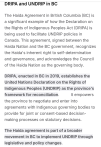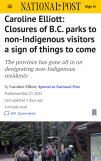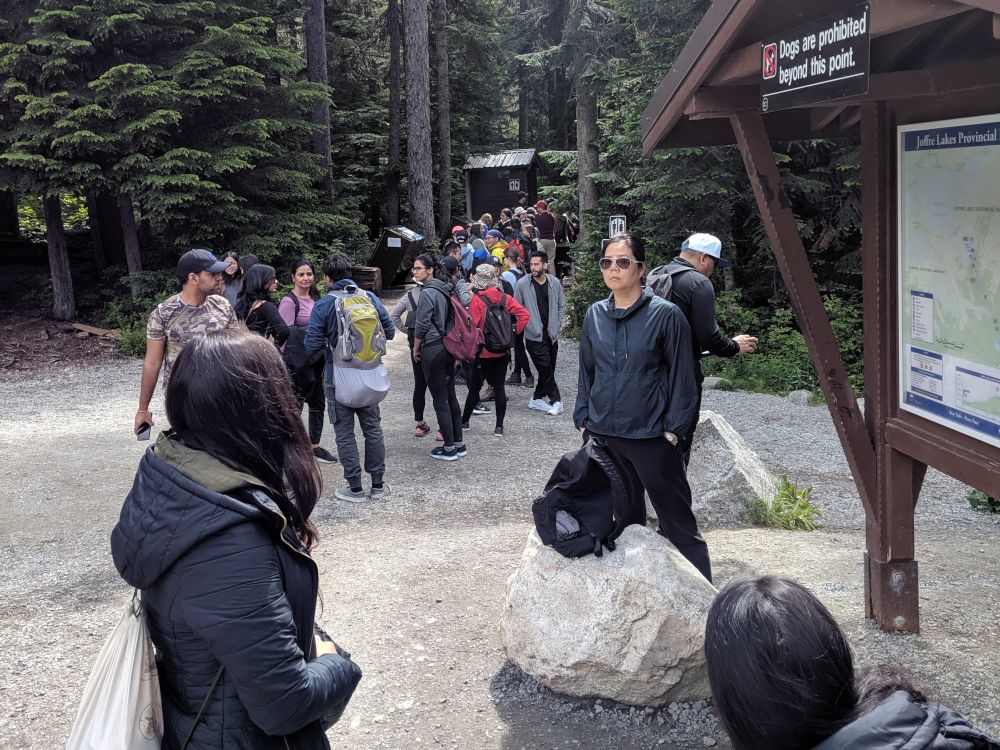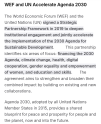You are using an out of date browser. It may not display this or other websites correctly.
You should upgrade or use an alternative browser.
You should upgrade or use an alternative browser.
A BC Indian Band has unilaterally & indefinitely barred the public from a large area of public land, including access to Blue Earth Provincial Park.
- Thread starter DisobeyTyranny
- Start date
Youngracer88
Nothing better than a day of hard work.
Anybody else getting really bad injun fatigue lately? I have.
ayn_rands_ghost
Commie Crusher
They also shut down Joffre lakes Park for last three years, first only a couple weeks, then a month and a half last year and for 100 days this year thanks to NDP. This will get worse and worse every year I think.
Beers2Freedom
A Carney runs CLOWNADA
You guys seem confused. Most of you can't see beyond racial lines.
This is part of a much larger plan. It has nothing to do with race, it's about land rights/ownership. If the BC Government can designate the land as "Indigenous land" they can strip anyone of their private property rights. They are laying the foundation right now.
The race baiting bullshit is a distraction.
It's UNDRIP

An opinion piece in the National Post broke this down pretty well.


 nationalpost.com
nationalpost.com
Racial division is a weapon being wielded against all of us. The bottom line is while you guys are so worried about racial lines, you are being distracted from what's actually happening.
While the W.H.O. had everyone's attention with Covid. UNDRIP was being slid in the back door. Now everyone is getting fucked and they think it's by the "Injuns". The U.N. and WEF are the ones fucking us. Agenda 2030 is being implemented.

This is part of a much larger plan. It has nothing to do with race, it's about land rights/ownership. If the BC Government can designate the land as "Indigenous land" they can strip anyone of their private property rights. They are laying the foundation right now.
The race baiting bullshit is a distraction.
It's UNDRIP
DRIPA is the Canadian UNDRIP.Many of these policies are being undertaken in the name of the Declaration on the Rights of Indigenous Peoples Act (DRIPA), which commits the B.C. government to bring all of its laws into alignment with the United Nations Declaration on the Rights of Indigenous Peoples(UNDRIP)

An opinion piece in the National Post broke this down pretty well.


Caroline Elliott: Closures of B.C. parks to non-Indigenous visitors a sign of things to come
The province has gone all in on denigrating non-Indigenous residents
If the position of Indigenous groups, and seemingly the B.C. government, is that the mere assertion of Aboriginal title confers the right to prohibit access to public spaces, then there is nothing to prevent similar closures not just of other parks, but of any public lands throughout the province.
After all, virtually all of the province’s land mass is claimed as traditional territory by one or more of B.C.’s 200-plus Indigenous groups, which together represent around six per cent of the population.
The issue already extends far beyond parks. The B.C government was criticized in February for withholding the details of a significant deal with the shíshálh Nation on the Sunshine Coast until after last year’s provincial election. It involves huge amounts of money, transfers of land and promises to negotiate Aboriginal title and “exclusive decision-making” powers in the band’s traditional territory.
Ongoing negotiations with the shíshálh Nation are likely to follow the model of last year’s Haida agreement, which Premier David Eby called a “template” for other areas of B.C. It recognized Aboriginal title over the million-hectare Haida Gwaii islands. Approved in a referendum held only for Haida voters (even though half the affected residents are non-Haida), it raises democratic red flags, as well as legal concerns about private property rights and the constraints it places on the ability of future governments to act in the public interest.
The Haida agreement followed on the heels of B.C.’s proposed Land Act amendments, which were paused following a public outcry. The amendments would have allowed the government to enter into agreements with individual Indigenous groups to give them control over up to 95 per cent of B.C.’s public lands, despite the absence of a democratic relationship between those governing bodies and 94 per cent of the population.
Racial division is a weapon being wielded against all of us. The bottom line is while you guys are so worried about racial lines, you are being distracted from what's actually happening.
While the W.H.O. had everyone's attention with Covid. UNDRIP was being slid in the back door. Now everyone is getting fucked and they think it's by the "Injuns". The U.N. and WEF are the ones fucking us. Agenda 2030 is being implemented.

Critics argue that the partnership between the WEF and the UN could lead to a New World Order or a global socialist system, as Agenda 2030 aims to centralize power and influence everything from governments to economies.
They also express concerns about the lack of consultation with citizens of Western democracies and the potential for comprehensive government control over the economy and society.
Despite these criticisms, the partnership continues to be seen as a strategic move to accelerate the achievement of the 2030 Agenda's goals.
FiatFallacy
It's monopoly money
ChevChelios
The world's foremost authority
It's absolutely an attack both on the concept of private property ownership in so-called "settler" countries and on the historical legitimacy of those countries in the first place, the better to soften them up for eventual dissolution and absorption into continental superstates
